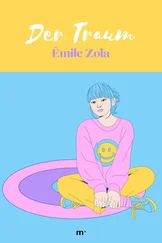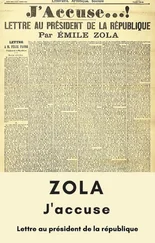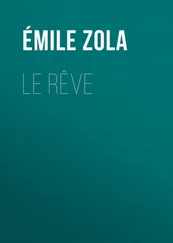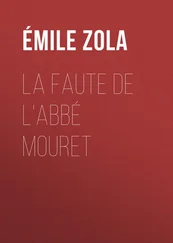Émile Zola - Fruitfulness
Здесь есть возможность читать онлайн «Émile Zola - Fruitfulness» — ознакомительный отрывок электронной книги совершенно бесплатно, а после прочтения отрывка купить полную версию. В некоторых случаях можно слушать аудио, скачать через торрент в формате fb2 и присутствует краткое содержание. Жанр: literature_19, foreign_antique, foreign_prose, на английском языке. Описание произведения, (предисловие) а так же отзывы посетителей доступны на портале библиотеки ЛибКат.
- Название:Fruitfulness
- Автор:
- Жанр:
- Год:неизвестен
- ISBN:нет данных
- Рейтинг книги:5 / 5. Голосов: 1
-
Избранное:Добавить в избранное
- Отзывы:
-
Ваша оценка:
- 100
- 1
- 2
- 3
- 4
- 5
Fruitfulness: краткое содержание, описание и аннотация
Предлагаем к чтению аннотацию, описание, краткое содержание или предисловие (зависит от того, что написал сам автор книги «Fruitfulness»). Если вы не нашли необходимую информацию о книге — напишите в комментариях, мы постараемся отыскать её.
Fruitfulness — читать онлайн ознакомительный отрывок
Ниже представлен текст книги, разбитый по страницам. Система сохранения места последней прочитанной страницы, позволяет с удобством читать онлайн бесплатно книгу «Fruitfulness», без необходимости каждый раз заново искать на чём Вы остановились. Поставьте закладку, и сможете в любой момент перейти на страницу, на которой закончили чтение.
Интервал:
Закладка:
On the morrow, when Mathieu had to attend to the delicate mission which he had undertaken, he remembered the two women of whom Celeste, the maid, had spoken on the day of his visit to the Seguins. He at first dismissed all idea of that Madame Rouche, of whom the girl had spoken so strangely, but he thought of making some inquiries respecting Madame Bourdieu, who accommodated boarders at the little house where she resided in the Rue de Miromesnil. And he seemed to remember that this woman had attended Madame Morange at the time of Reine’s birth, a circumstance which induced him to question the cashier.
At the very first words the latter seemed greatly disturbed. “Yes, a lady friend recommended Madame Bourdieu to my wife,” said he; “but why do you ask me?”
And as he spoke he looked at Mathieu with an expression of anguish, as if that sudden mention of Madame Bourdieu’s name signified that the young fellow had guessed his secret preoccupations. It was as though he had been abruptly surprised in wrong-doing. Perhaps, too, certain dim, haunting thoughts, which he had long been painfully revolving in his mind, without as yet being able to come to a decision, took shape at that moment. At all events, he turned pale and his lips trembled.
Then, as Mathieu gave him to understand that it was a question of placing Norine somewhere, he involuntarily let an avowal escape him.
“My wife was speaking to me of Madame Bourdieu only this morning,” he began. “Oh! I don’t know how it happened, but, as you are aware, Reine was born so many years ago that I can’t give you any precise information. It seems that the woman has done well, and is now at the head of a first-class establishment. Inquire there yourself; I have no doubt you will find what you want there.”
Mathieu followed this advice; but at the same time, as he had been warned that Madame Bourdieu’s terms were rather high, he stifled his prejudices and began by repairing to the Rue du Rocher in order to reconnoitre Madame Rouche’s establishment and make some inquiries of her. The mere aspect of the place chilled him. It was one of the black houses of old Paris, with a dark, evil-smelling passage, leading into a small yard which the nurse’s few squalid rooms overlooked. Above the passage entrance was a yellow signboard which simply bore the name of Madame Rouche in big letters. She herself proved to be a person of five- or six-and-thirty, gowned in black and spare of figure, with a leaden complexion, scanty hair of no precise color, and a big nose of unusual prominence. With her low, drawling speech, her prudent, cat-like gestures, and her sour smile, he divined her to be a dangerous, unscrupulous woman. She told him that, as the accommodation at her disposal was so small, she only took boarders for a limited time, and this of course enabled him to curtail his inquiries. Glad to have done with her, he hurried off, oppressed by nausea and vaguely frightened by what he had seen of the place.
On the other hand, Madame Bourdieu’s establishment, a little three-storied house in the Rue de Miromesnil, between the Rue La Boetie and the Rue de Penthievre, offered an engaging aspect, with its bright facade and muslin-curtained windows. And Madame Bourdieu, then two-and-thirty, rather short and stout, had a broad, pleasant white face, which had greatly helped her on the road to success. She expatiated to Mathieu on the preliminary training that was required by one of her profession, the cost of it, the efforts needed to make a position, the responsibilities, the inspections, the worries of all sorts that she had to face; and she plainly told the young man that her charge for a boarder would be two hundred francs a month. This was far more than he was empowered to give; however, after some further conversation, when Madame Bourdieu learnt that it was a question of four months’ board, she became more accommodating, and agreed to accept a round sum of six hundred francs for the entire period, provided that the person for whom Mathieu was acting would consent to occupy a three-bedded room with two other boarders.
Altogether there were about a dozen boarders’ rooms in the house, some of these having three, and even four, beds; while others, the terms for which were naturally higher, contained but one. Madame Bourdieu could accommodate as many as thirty boarders, and as a rule, she had some five-and-twenty staying on her premises. Provided they complied with the regulations, no questions were asked them. They were not required to say who they were or whence they came, and in most cases they were merely known by some Christian name which they chose to give.
Mathieu ended by agreeing to Madame Bourdieu’s terms, and that same evening Norine was taken to her establishment. Some little trouble ensued with Beauchene, who protested when he learnt that five hundred francs would not suffice to defray the expenses. However, Mathieu managed affairs so diplomatically that at last the other not only became reconciled to the terms, but provided the money to purchase a little linen, and even agreed to supply pocket-money to the extent of ten francs a month. Thus, five days after Norine had entered Madame Bourdieu’s establishment, Mathieu decided to return thither to hand the girl her first ten francs and tell her that he had settled everything.
He found her there in the boarders’ refectory with some of her companions in the house – a tall, thin, severe-looking Englishwoman, with lifeless eyes and bloodless lips, who called herself Amy, and a pale red-haired girl with a tip-tilted nose and a big mouth, who was known as Victoire. Then, too, there was a young person of great beauty answering to the name of Rosine, a jeweller’s daughter, so Norine told Mathieu, whose story was at once pathetic and horrible. The young man, while waiting to see Madame Bourdieu, who was engaged, sat for a time answering Norine’s questions, and listening to the others, who conversed before him in a free and open way. His heart was wrung by much that he heard, and as soon as he could rid himself of Norine he returned to the waiting-room, eager to complete his business. There, however, two women who wished to consult Madame Bourdieu, and who sat chatting side by side on a sofa, told him that she was still engaged, so that he was compelled to tarry a little longer. He ensconced himself in a large armchair, and taking a newspaper from his pocket, began to read it. But he had not been thus occupied for many minutes before the door opened and a servant entered, ushering in a lady dressed in black and thickly veiled, whom she asked to be good enough to wait her turn. Mathieu was on the point of rising, for, though his back was turned to the door, he could see, in a looking-glass, that the new arrival was none other than Morange’s wife, Valerie. After a moment’s hesitation, however, the sight of her black gown and thick veil, which seemed to indicate that she desired to escape recognition, induced him to dive back into his armchair and feign extreme attention to his newspaper. She, on her side, had certainly not noticed him, but by glancing slantwise towards the looking-glass he could observe all her movements.
Meantime the conversation between the other women on the sofa continued, and to Mathieu’s surprise it suddenly turned on Madame Rouche, concerning whom one of them began telling the most horrible stories, which fully confirmed the young man’s previous suspicions. These stories seemed to have a powerful fascination for Valerie, who sat in a corner, never stirring, but listening intently. She did not even turn her head towards the other women, but, beneath her veil, Mathieu could detect her big eyes glittering feverishly. She started but once. It was when one of the others inquired of her friend where that horrid creature La Rouche resided, and the other replied, “At the lower end of the Rue du Rocher.”
Читать дальшеИнтервал:
Закладка:
Похожие книги на «Fruitfulness»
Представляем Вашему вниманию похожие книги на «Fruitfulness» списком для выбора. Мы отобрали схожую по названию и смыслу литературу в надежде предоставить читателям больше вариантов отыскать новые, интересные, ещё непрочитанные произведения.
Обсуждение, отзывы о книге «Fruitfulness» и просто собственные мнения читателей. Оставьте ваши комментарии, напишите, что Вы думаете о произведении, его смысле или главных героях. Укажите что конкретно понравилось, а что нет, и почему Вы так считаете.












